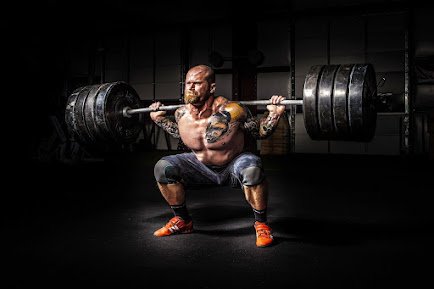If you are into bodybuilding or strength training, you will need something extra to gain muscle. Check out the best bodybuilding supplements.
Home Healthy Eating Nutrition 6 best bodybuilding supplements for muscle gain
NUTRITION
6 best bodybuilding supplements for muscle gain
Supplements
Dosage
Results
Side effects
If you are into bodybuilding or strength training, you will need something extra to gain muscle. Check out the best bodybuilding supplements.
Nutritionist Haripriya.N. advises women who compete in bodybuilding or strength training to concentrate on supplements that enhance muscle growth, recuperation, and overall performance.
The following are a few supplements that may be helpful:
High-quality protein sources like whey protein include all the key amino acids needed for muscle growth and repair. A 2023 study that was published in the Nutrients journal suggests that whey protein supplementation may aid in augmenting the gain in muscle mass brought on by resistance training. It also contributes to general muscle endurance and strength. Choose a whey protein isolate or concentrate with the fewest added sugars or artificial chemicals that satisfies your dietary requirements (such as low-carb or lactose-free).
Fitness trainer and nutritionist Juily Wagle claims that the body naturally produces creatine, which is essential for producing energy, especially during brief bursts of high-intensity activity. Over time, it improves muscle development by enhancing muscle strength and performance during high-intensity workouts. In addition to improving neurological function, creatine was found to have favorable effects on strength, power, and fat-free mass in a 2012 study that was published in the Journal of the International Society of Sports Nutrition. Seek for creatine monohydrate, the most affordable type of the supplement.
Leucine, isoleucine, and valine, also known as BCAAs, are branched-chain amino acids that enhance muscle protein synthesis, lessen muscle breakdown, and aid in recovery, according to Haripriya. Choose a leucine to isoleucine and valine supplement from the BCAA line; it should ideally come in powder or capsule form for ease of use.
Omega-3 fatty acids promote joint health, lessen inflammation, and speed up the healing of injured muscles. Seek for a fish oil supplement that comes from reliable, purified fish oil and has a high concentration of the active forms of omega-3, docosahexaenoic acid (DHA) and eicosapentaenoic acid (EPA).
A lack of vitamin D can have an adverse effect on sports performance because it affects muscle strength and function. Choose a vitamin D3 supplement, particularly if you don’t get much sun exposure or don’t get enough vitamin D.
Magnesium supports muscle relaxation, reduces cramping, and aids in energy production. Choose a magnesium supplement that is well-absorbed (e.g., magnesium glycinate or citrate) and take it as recommended by your doctor.
Bodybuilding supplements vary in dosage, frequency of usage, and duration based on individual parameters like age, body weight, exercise volume, and general health. These are the suggested supplements’ general guidelines. However, only eat these after speaking with a medical professional and fitness specialist:
1. Protein whey
According to Haripriya, the recommended amount is normally 20 to 25 grams per serving, best taken after a workout or as a handy source of protein throughout the day. It can be taken on a daily basis, particularly prior to exercise or when the body need more protein in the diet. Supplementing with whey protein can be continued for as long as necessary to meet protein intake objectives and promote muscle growth and recovery.
According to a 2012 study published in the Journal of the International Society of Sports Nutrition, there is a loading phase of 20 grams per day (divided into 4 dosages) for 5 to 7 days, followed by a maintenance phase of 3 to 5 grams per day to maintain the increased creatinine reserves. It is possible to take it every day; for best absorption, take it before or after exercise. It can be used continually with intervals of time off (for example, cycling off for four to eight weeks) to evaluate its continued advantages.
Each serving of 5 to 10 grams of BCAAs should ideally come before or after a workout. It can be used on a daily basis to support muscular performance and recuperation, particularly during workouts. As part of an exercise regimen, BCAA supplementation can be continued, with dosage adjustments made based on individual needs.
Depending on the amount of EPA and DHA present, the recommended daily intake ranges from 1 to 2 grams of combined EPA and DHA. It can be taken every day to improve absorption, along with meals. According to Haripriya, fish oil can be used consistently to enhance general health and recuperation, with dosage adjustments made based on food intake.
A lack of vitamin D can have an adverse effect on sports performance because it affects muscle strength and function. Choose a vitamin D3 supplement, particularly if you don’t get much sun exposure or don’t get enough vitamin D.
200–400 mg can be consumed daily, based on tolerance and personal needs. It can be taken every day, though taking it with food will improve absorption. Supplementing with magnesium can be carried out as needed to maintain general health and muscle function.
It is essential to begin with smaller doses and increase them gradually while keeping an eye out for any negative effects.
Individual aspects including genetics, food, workout routine, and supplement consistency all affect how supplements work out. According to Wagle, with regular use, significant gains in muscle strength and endurance may usually be shown in a matter of weeks to months. However, it usually takes several months to a year of consistent training and supplements to get noticeable muscle growth. It is crucial to remember that supplements do not guarantee outcomes. They consist of a regular exercise schedule, a diet that promotes muscular building, and giving the body the right amount of rest and recuperation time in between exercises.




